Hip-hop artist J. Cole insists that no one has been waiting longer for his first studio album to drop than J. Cole. But just try telling that to fans who have been following him since his first mixtape, The Come Up from 2007. Or even those with a cursory knowledge of hip hop who have been intrigued by his reputation as the first artist signed to Roc Nation, the record label started by Jay-Z in 2009. That was the same year Jay-Z invited his protégé to rap a verse on the Blueprint 3.Appropriately, the track was called A Star Is Born, and on it, J. Cole spent a few lines contemplating his impending fame. He kept the momentum going with two more mixtapes – both confirming his status in the freestyle firmament – and several cool collaborations, but two years passed and no studio album. Cole World: The Sideline Story finally arrived on Sept. 27 and coincided with J. Cole’s first headlining tour, which makes stops in 76 cities across North America and Europe before the year’s end. On Amazon.com, the album already ranks as the bestselling hip-hop album. Still, he remains largely unknown outside the genre. This means that the towering 26-year-old is either about to become the hottest breakout star since Drake or a talented MC who fails to translate to a mainstream market. J. Cole’s first single off the album, Work Out, features a sample of Paula Abdul’s Straight Up and is cute, catchy and romantic in a non-committal kind of way.
He acknowledges that the song represents a different – and necessary – side to his otherwise moody, often autobiographical lyrics. “Even visually, we shot a different video at first and it was too dark and I needed it more lighthearted – something less serious and with colours,” he says. The artist has fine-tuning his performance skills along the way, opening for Rihanna, Jay-Z and Wale. “I’m more confident now,” he explained the evening before his recent sold-out Toronto show. “You know whoever is there is there to see you as opposed to going in with the mind state of having to win people over every night.” Jermaine Lamarr Cole was born in Frankfurt, Germany, but moved to Fayetteville, N.C., with his mother Kay, who he calls his “biggest supporter.”
He later moved to New York and attended St. John’s University, graduating magna cum laude. But life did not change overnight once he signed with Jay-Z. “Everyone kept asking me, ‘Hey, what’s your relationship like with Jay-Z?’ But I was like man, I don’t really even know the guy yet,” he says. “There was a bit of sitting around, you know. I was waiting on my cheque.” Whatever delays J. Cole experienced on the studio side did not preclude him from putting out mixtapes – music available to download free – which allowed him to build a reputation as an articulate MC who produces his own beats and raps about real-life issues in the style of Tupac Shakur, with nods to other hip-hop greats such as Nas and Jay-Z.
He also started playing with the notion of “Cole World” (a play off “cold world”) on a track in The Warm Up mixtape and it stuck. Now, it seems his expectation of himself is nothing less than worldwide success, so much so that he is already referring to this stage of his career as the “innocent period.” “I’m just now starting to see the signs of no return,” he says. “I’ll look back on these three years like, man, those were the days when we were just freestylin’ and learning, before we got too jaded and now we know the business in and out and what needs to be done and it’s still fun but it’s a different kind of fun. I don’t know if we’ll be able to get this back. But it’s always like that.” J. Cole and Drake, who made the leap into mainstream last year, are often compared to each other. Some people embrace them equally, others take sides. Together, they recorded In the Morning, an oozy track about sex at dawn that is on The Sideline Story. Drake did not appear at J. Cole’s Toronto concert as he has done for other performers this year; J. Cole says he didn’t want to “abuse the friendship.” Laughing, J. Cole flatly denies the suggestion of a bromance.
“That just sounds so wrong!” he says. When he’s not on the road, J. Cole lives in Queens, N.Y. (apparently, Brooklyn is too trendy for his taste). His look is understated; as he says on one of his songs, “I’m not into flashin.’ ” Translation: He’s not big on the bling but appreciates nice things. “I’m getting there but not enough to really claim it,” he says of his style, while also adding that he envisions a clothing brand along the lines of Jay-Z’s Rocawear one day. It comes as no surprise when he says he's beginning to see himself as “the CEO of J. Cole.” But J. Cole did not always aspire to rap mogul status. “It’s the stereotype for young black males, but if I weren’t doing this, I would honestly be trying to chase a basketball dream.
For real. It was my first love.” A lean 6 foot 4, he certainly would have met the height requirement. The court has remained a running theme in his music; he often refers to himself as the “LeBron James of rap” and the video for Work Out shows him distracted by girls as he plays a game of pick-up. And then, of course, there’s the album title. The subtext of Cole World: The Sideline Story: “I made the team, aka I made the record deal and it was like this celebration moment,” he says. “But then I realized, now that I’m on the team, it doesn’t really mean anything because I don’t want to be the last one on the bench. What good is being on the team if you never get in the game?” Now, J. Cole must prove he’s hip hop’s most valuable player



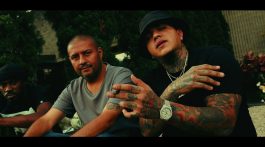

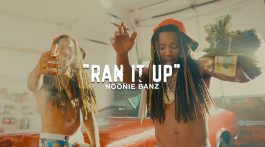
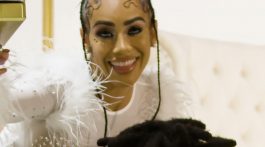


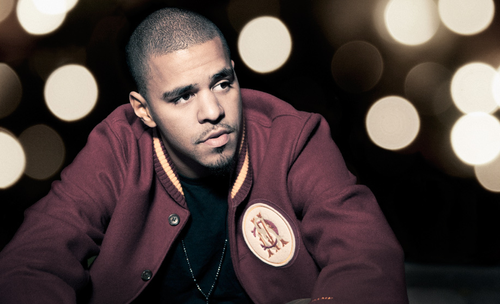
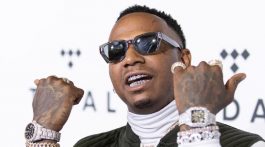
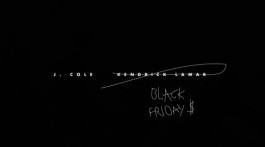
4 Comments